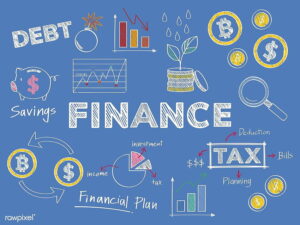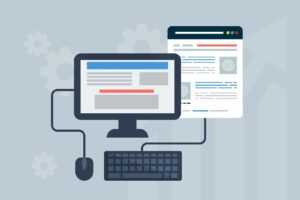To buy Hyundai inventory in India, you want to follow...
Read MoreMost Recent Blogs
Kyle Verreynne Net Worth
An industrious South African cricketer, Kyle Verreynne has done well...
Read MoreDeepak Mohoni Net Worth in 2024
Deepak Mohoni is a famous call within the Indian stock...
Read MoreSherrone Moore net worth in 2024
Sherrone was born on 31st December in the year 1974,...
Read MoreYour Financial Education
Financial Education वित्तीय शिक्षा आपके धन का कुशलतापूर्वक प्रबंधन करने...
Read MoreTolins Tyres IPO Share Price
Tolins Tyres IPO share Price Tolins Tyres is gearing up...
Read MoreKross Limited Share Price
Kross Limited share price Kross Limited is a distinguished player...
Read MoreBrett Rypien Net Worth
Brett Rypien net worth American football quarter back Brett Rypien...
Read Morewhat is Financial Planning?
Financial planning is a comprehensive approach to handling your price...
Read MorePopular Blogs
Bill Pascrell Net Worth in 2024
Bill Pascrell net worth: Bill Pascrell’s net worth is a...
Read MoreWhat is Nutrition? : Nutrition and Mental Health
Nutrition is the cornerstone of a healthy lifestyle. It encompasses...
Read MoreDecoding Variables: Understanding Their Significance and Functionality
Variables lie at the core of programming and data analysis....
Read MoreGuide to Creating Stunning Web Pages by HTML
HTML stands as the cornerstone, the bedrock upon which the...
Read MoreIn today’s world, loans and credit cards have become integral parts of our financial lives. While they can offer convenience and flexibility, they can also lead to overwhelming debt if not managed properly. Paying off loans and credit card debt requires discipline, planning, and strategic financial decisions.
Table of Contents
ToggleHere are seven effective tips to help you tackle your debt and achieve financial freedom.
Create a Budget: The first step towards paying off loans and credit cards is to gain a clear understanding of your finances. Start by creating a comprehensive budget that outlines your monthly income and expenses. Identify areas where you can cut back on spending and allocate more funds towards debt repayment. A budget serves as a roadmap for your financial journey and helps you stay on track toward your goals.
Prioritize High-Interest Debt: Not all debts are created equal. High-interest debt, such as credit card balances, typically accrues interest at a much faster rate than other loans. Focus on paying off high-interest debt first to minimize the amount of interest you’ll end up paying over time. Make larger payments towards these accounts while continuing to make minimum payments on other debts.
Use the Debt Snowball or Debt Avalanche Method: Two popular debt repayment strategies are the debt snowball and debt avalanche methods. With the debt snowball method, you focus on paying off the smallest debt first while making minimum payments on larger debts. Once the smallest debt is paid off, you roll that payment into the next smallest debt, creating a snowball effect. The debt avalanche method, on the other hand, prioritizes debts with the highest interest rates first, potentially saving you more money on interest in the long run. Choose the method that aligns best with your financial goals and personality.
Consider Debt Consolidation: If you have multiple debts with varying interest rates, debt consolidation may be a viable option. Consolidating your debts involves combining them into a single loan with a lower interest rate, which can make repayment more manageable. Explore balance transfer credit cards, personal loans, or home equity loans as potential consolidation options. However, be cautious and ensure that the new loan terms are favorable and that you’re not simply prolonging your debt repayment journey.
Increase Your Income: Boosting your income can accelerate your debt repayment efforts significantly. Consider taking on a part-time job, freelancing, or selling items you no longer need to generate extra cash. Use any additional income to make lump-sum payments towards your debts or to supplement your regular payments. Increasing your income not only helps you pay off debt faster but also builds a stronger financial foundation for the future.
Negotiate with Creditors: Don’t hesitate to reach out to your creditors if you’re experiencing financial hardship. Many creditors are willing to negotiate new repayment terms, such as lower interest rates, reduced monthly payments, or even debt settlement agreements. Be honest about your situation and provide documentation if necessary. Negotiating with creditors can help alleviate financial stress and make debt repayment more manageable.
Stay Committed and Stay Positive: Paying off loans and credit cards requires patience, perseverance, and a positive mindset. Celebrate small victories along the way, such as paying off a credit card or reaching a debt milestone. Stay committed to your financial goals and remind yourself of the benefits of becoming debt-free. Surround yourself with a supportive network of friends and family who can encourage and motivate you throughout your debt repayment journey.
Conclusion
Paying off loans and credit cards may seem daunting, but with the right strategies and mindset, it’s entirely achievable. By creating a budget, prioritizing high-interest debt, exploring consolidation options, increasing your income, negotiating with creditors, and staying committed to your goals, you can take control of your finances and work towards a debt-free future. Remember that every step you take towards debt repayment brings you one step closer to financial freedom and peace of mind.
Copyright © All Rights Reserved. GMS













